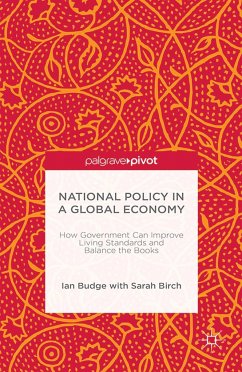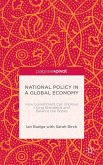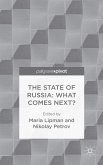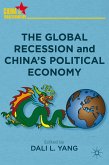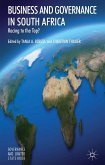This study offers an analysis of the UK's current economic policy options and a plan for improving life for ordinary citizens via a sensible and realistic understanding of governments' limited ability to manage economic performance. It provides a manifesto which political parties could immediately adopt to make life better for all.
"This is a hugely timely book. All countries need to face up to the implications of racing globalisation without losing sight of the crucial things national governments can do to improve their societies and economies. This is a fascinating primer for our times." - Lord Hennessy, Baron Hennessy of Nympsfield
"This book should set the cat among the pigeons, if the pigeons can still fly. The authors' radicalism and they are radical is matched by their deep understanding of the world market economy. No one has written along remotely the same lines." Anthony King, Co-author of The Blunders of Our Governments
"Vigorous, iconoclastic and hard-hitting, Budge and Birch's attack on the phantom idea of a national economy - so tenaciously adhered to by politicians and policy-makers - opens up a radical prospect for thinking about the priorities of public policy, concluding with a call to action. Agree or disagree, you should not ignore it." Albert Weale, Professor Of Political Theory And Public Policy, University College London, UK
"This book should set the cat among the pigeons, if the pigeons can still fly. The authors' radicalism and they are radical is matched by their deep understanding of the world market economy. No one has written along remotely the same lines." Anthony King, Co-author of The Blunders of Our Governments
"Vigorous, iconoclastic and hard-hitting, Budge and Birch's attack on the phantom idea of a national economy - so tenaciously adhered to by politicians and policy-makers - opens up a radical prospect for thinking about the priorities of public policy, concluding with a call to action. Agree or disagree, you should not ignore it." Albert Weale, Professor Of Political Theory And Public Policy, University College London, UK

